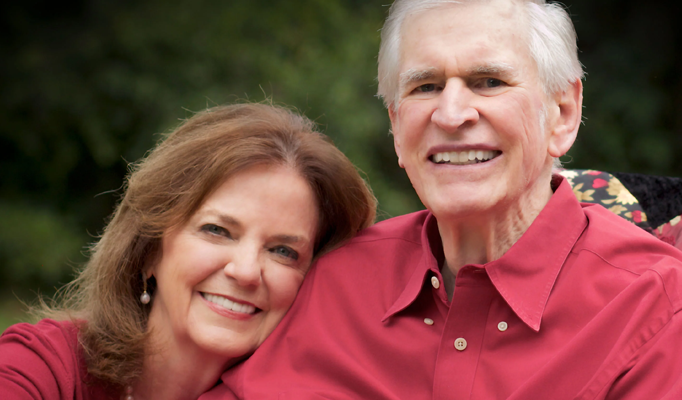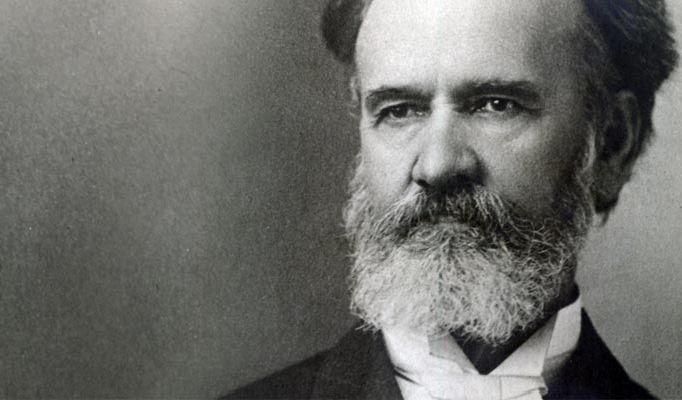
Francis and Judith MacNutt were one of the most remarkable healing teams of God that the world has ever known. Born in 1925, Francis MacNutt’s career dream was to become a medical doctor. In 1944, at age 19, he was accepted by Washington University Medical School after only two years of college premed. Ten days before entering medical school, he was drafted, serving the next two years in the Medical Department of the Army as a surgical technician, mostly in the operating room of the hospital at Camp Crowder, Missouri.
After World War II, he returned to Harvard where he completed an honours degree in English, followed by a Masters’ Degree in Speech and Drama at Catholic University of America in Washington DC. In 1956, he was ordained as a Dominican priest, before completing his Ph.D. in Theology from Aquinas Institute of Theology. Serving there as a Professor of Preaching, he was elected President of the National Catholic Homiletics Society. After founding the journal Preaching in 1965, he held preaching seminars throughout North America.
When first praying for healing with others, Francis initially suffered from what he called ‘spiritual inferiority’, “I was afraid of looking ridiculous or being labeled as overly pious.” In 1960, Francis met Rev. Alfred Price, the Warden of the Order of St. Luke the Physician. In 1967, Francis experienced a life-changing outpouring of the Holy Spirit at a Camp Farthest Out conference. There he encountered Agnes Sanford, who became his mentor in the healing ministry, and Rev. Tommy Tyson, a Methodist pastor who later traveled worldwide with Francis on healing missions. A year later, Francis became the first Catholic priest to ever attend Agnes Sanford’s School for Pastoral Care. Francis became like a spiritual talent scout who could discern and call forth other people’s gifts of healing and deliverance. He was so excited to see the healing ministry restored to God’s people: “One of the greatest losses the Church has suffered has been her full heritage of healing power.”
Francis and Tommy lovingly broke down denominational barriers, being welcome in both Catholic and Protestant contexts. In 1974, Francis wrote the book Healing, which has sold over a million copies, becoming a classic text on the healing ministry. He commented: “We’re trying to get an understanding of healing back into the churches. People say ‘we don’t need that anymore, we’ve got doctors.” Francis welcomed the role of doctors working in conjunction with the healing ministry. Agnes Sanford called this book “the most scholarly and comprehensive book on Christian healing that I have ever read.” Francis went on to write seven more books on the history, theology and scriptural basis of healing.
In 1975, while ministering at the World Conference on the Holy Spirit in Jerusalem, Francis met Judith Sewell, a psychotherapist who was leading a local house of prayer. Judith learned much about the healing ministry while praying for hurting Arabs and Jews. Through Francis’ prayer, Judith was healed from uterine cancer symptoms, and did not have to undergo a hysterectomy. Over the next five years, their strong friendship led them to seek the Lord about becoming married.
Because of Francis’ high-profile ministry, many people sent Judith letters telling her what a terrible and evil person she was as she was considering marrying Francis. After leaving the Dominican order, he was excommunicated because of his marriage. His application for laicization was denied until 1993 when he received a dispensation to revert to be a lay person.
Being married to Judith was such a blessing to Francis: “We pray every morning. We pray every evening. It is the first and last things that we do. We have discovered that most Christians that are married don’t pray with each other.” Only three percent of Christians have ever received prayer from their own fathers. The MacNutt’s intentionally mentored their children to feel comfortable with both set and spontaneous prayers as a way of deepening their Intimacy with the heavenly Father.
In February 1980, Francis and Judith settled in Clearwater, Florida, where they established Christian Healing Ministries. Their complimentary gifts and passion for the healing ministry made them a remarkably effective team. In 1987, they relocated to Jacksonville, Florida. In the mid-2000s, about 500 Catholic charismatic priests and lay leaders from the worldwide Catholic Charismatic Renewal travelled to Jacksonville to learn from Francis and Judith in the Schools of Healing Prayer. Thousands of people have been trained at the MacNutt’s Christian Healing Ministries. Francis and Judith also helped found the Association of Christian Therapists. In 2008, Francis named his wife, Judith, to succeed him as President of CHM, while he took on the position of President Emeritus. MacNutt and his wife have two grown children, Rachel and David, both of whom are involved in the healing ministry and editing of healing books. After Francis died on January 12, 2020, aged 94, Judith has faithfully carried on with her expansive healing ministry.
Francis and Judith were allergic to techniques in the healing ministry. Instead, they focused on the healing presence of Jesus: “We don’t want to set up a rule or technique in his place, that if you do this, this and this, that it will always work.” Francis held that ‘something always happens when you pray.’ In conjunction with Tommy Tyson, they popularized the concept of ‘soaking prayer’, spending extended time in healing prayer. Francis commented: “If even Jesus had to pray twice, there is good warrant that I might have to pray three times.” Soaking prayer was in contrast to the popular view that you should only pray once before claiming your healing. To Francis, ‘soaking prayer’ conveys the idea of time to let something seep through to the core of something dry that needs to be revived.
Francis was an ‘apostle’ of the Father’s love. Judith described Francis as “a gentle, strong loving ambassador for the Lord Jesus Christ.” She also commented: “We need to hear that we are loved, we need to hear that we have authority in the name of Jesus, we need to take that love to everyone else in this world.” Francis was used in healing Judith’s Cherokee dad from cancer who then gave his life to Jesus Christ. Judith commented that Francis had ‘a supernatural gift of love.’
Both Francis and Judith were powerfully used in restoring the true image of God for broken people. Healing for the MacNutt’s was about first opening our spiritual sight to see how much we are loved by the Father. Judith MacNutt commented: “Jesus died so that we can call God our heavenly Father…Jesus was always shattering people’s images of God.” Judith observed that forgiveness opens the door and love brings the healing. Dealing with resentments through forgiveness has been foundational to the MacNutt’s healing ministry. Francis commented, “the greatest block to God’s love being poured out among us are the resentments that we have in our hearts. Again, most of us have these resentments, but we can’t get rid of them except through gift…Almost every time Jesus talked about prayer, he talks about forgiveness. …The greatest block to healing, as I see it, is our lack of forgiveness for the people who have hurt us in the past.”
Francis and Judith were very thorough in their prayer for total health through breaking inner vows, judgements, soul ties, generational ties, curses and strongholds. Francis saw deliverance as a ministry of love to wounded human beings. Both Francis and Judith wanted people to walk in freedom. Our prayer is that the MacNutt’s pioneering examples will inspire many other Christians to walk in greater love, healing and forgiveness.
















